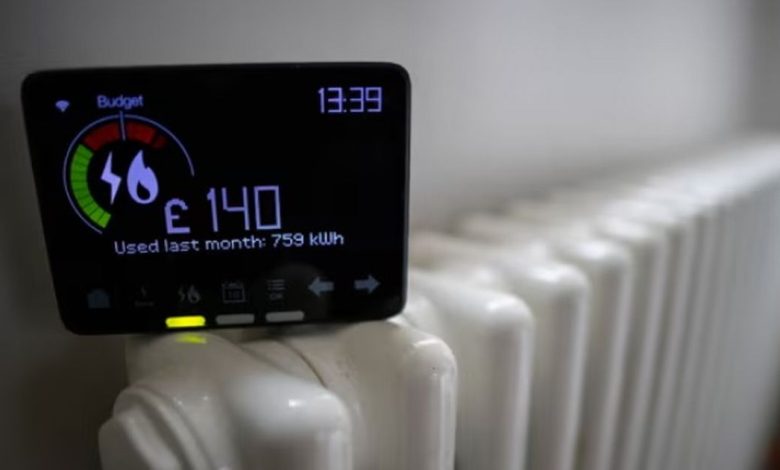British Gas, OVO, EDF, EON, Octopus customers urged to close accounts for £332

The cost of energy has been a significant burden on many households in the UK, with prices soaring in recent years. However, there is some good news on the horizon. According to energy consultancy Cornwall Insight, the price cap is set to fall to £1,720 in July, a reduction of £129 from the current price cap of £1,849 per year for a dual-fuel household. This represents a 7% decrease, which is certainly welcome news for households who have been struggling to make ends meet. But what does this really mean for households, and how can they make the most of this reduction?
For many households, the reduction in the price cap will be a welcome relief. It means that they will be paying £129 less per year for their energy, which can make a significant difference to their overall budget. However, it’s worth noting that the best fixed energy deal on the market is actually Outfox the Market’s 12-month fixed deal, which has an average annual bill of £1,517. This represents a £332 saving on the April price cap, and if Cornwall Insight’s prediction is correct, would still save households £203. This highlights the importance of shopping around and comparing energy deals to find the best one for your needs. Many households may be able to save even more money by switching to a fixed deal, rather than relying on the price cap.
The reduction in the price cap has been met with a mixed reaction from households. Some have expressed frustration that the reduction is not more significant, given the recent fall in oil prices. One bill payer commented, “Oil prices falling fast and as they keep telling us energy prices are linked. But slow reductions in prices. We are being taken for fools like Centrica who pay your CEO 5 million in bonus.” Others have pointed out that the price of mains gas is set by futures traders on the Dutch TTF, and that this can lead to slow reductions in prices. A third household noted, “Let’s see a price reduction in winter… now that would be a surprise.” These comments highlight the frustration and skepticism that many households feel towards the energy industry and the price cap.
Despite the reduction in the price cap, many households are still skeptical about whether they will actually see a decrease in their energy bills. One household commented, “It won’t make any difference. Bills won’t be reduced.” Another agreed, “And they will go up again by even more than we are paying now, in the Autumn and Winter. We all have to pay for the net zero nonsense.” These comments highlight the concern that many households have about the volatility of energy prices and the impact of government policies, such as the net zero target, on their energy bills. Will Owen, an energy expert at Uswitch, has also spoken out about the importance of households taking control of their energy bills. “If you haven’t switched in a year or more, you are probably on a standard deal and your rates are effectively dictated by the price cap,” he said. “Energy prices continue to be volatile. If you find a deal which beats the current cap and the July prediction, then switching is a no-brainer. It only takes a few minutes to run a comparison, so it’s worth checking what deals are available to you.”
The key takeaway from this news is that households need to be proactive in managing their energy bills. Rather than relying on the price cap, households should be shopping around and comparing energy deals to find the best one for their needs. With 16 fixed deals available that are already below the forecast level of the price cap, there are plenty of options available for households who are willing to switch. By taking control of their energy bills, households can save money and reduce their exposure to the volatility of energy prices. As Will Owen noted, “Energy prices continue to be volatile. If you find a deal which beats the current cap and the July prediction, then switching is a no-brainer.” By switching to a fixed deal, households can lock in a lower price and avoid the uncertainty of the price cap.
In conclusion, the reduction in the price cap is certainly welcome news for households, but it’s not the only option available. By shopping around and comparing energy deals, households can save even more money and reduce their exposure to the volatility of energy prices. With the best fixed energy deal on the market offering an average annual bill of £1,517, there are plenty of options available for households who are willing to switch. As one household noted, “Nothing new, just when its getting warm. Wait for the raise again later in the year as it starts to get cold.” By taking control of their energy bills and switching to a fixed deal, households can avoid the uncertainty of the price cap and save money in the long run. Whether you’re a household who is struggling to make ends meet or simply looking to save money on your energy bills, it’s worth taking the time to compare energy deals and find the best one for your needs.









8n2hwm